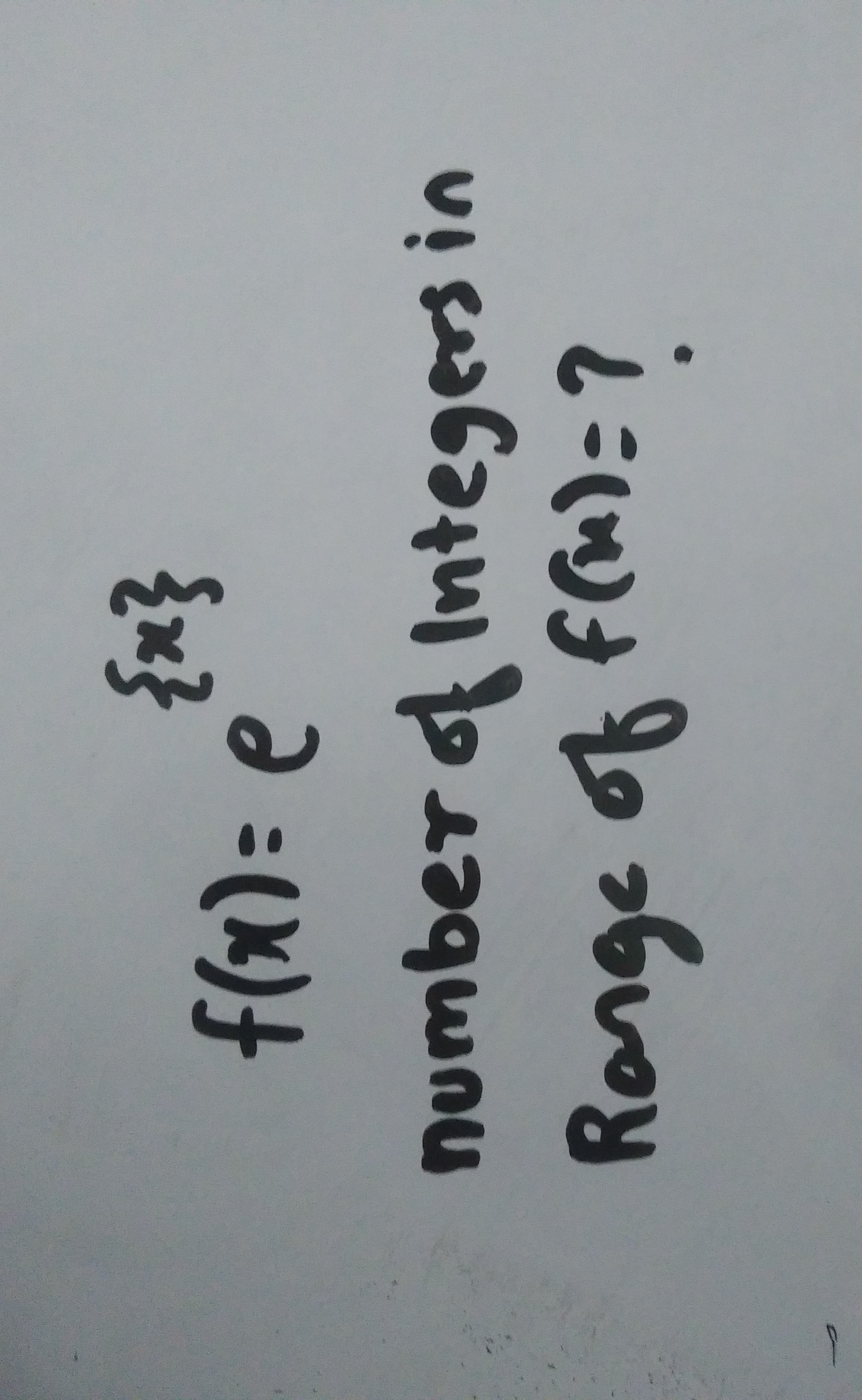Question
Question: $f(x)=e^{\{x\}}$ number of Integers in Range of $f(x)=?$...
f(x)=e{x}
number of Integers in Range of f(x)=?

2
Solution
The function is given by f(x)=e{x}, where {x} denotes the fractional part of x.
The range of the fractional part function {x} is [0,1). This means for any real number x, 0≤{x}<1.
The base of the exponential function is e, which is approximately 2.718. Since e>1, the exponential function g(y)=ey is strictly increasing for all real values of y.
To find the range of f(x), we evaluate the function ey over the range of the exponent {x}, which is [0,1).
As {x} varies from 0 up to (but not including) 1, e{x} varies from e0 up to (but not including) e1.
e0=1 and e1=e.
Therefore, the range of f(x) is [1,e).
We are asked to find the number of integers in this range [1,e).
We need to find the integers n such that 1≤n<e.
Since e≈2.718, the inequality becomes 1≤n<2.718.
The integers that satisfy this inequality are n=1 and n=2.
The next integer is 3, but 3>e, so it is not in the range.
The integers in the range [1,e) are 1 and 2.
The number of such integers is 2.
